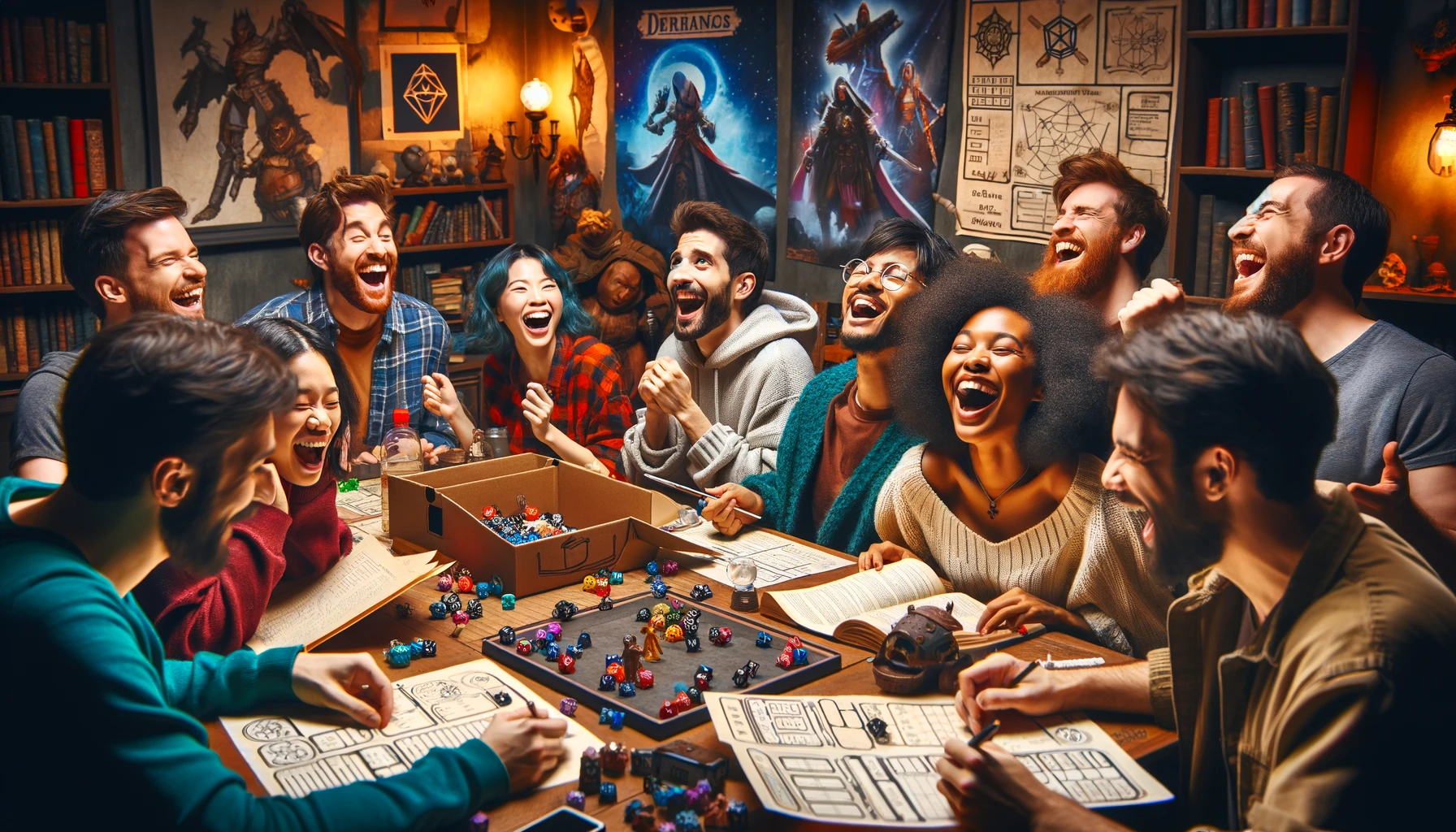The Magic of Role-Playing Games

Role-playing games (RPGs) are more than just games; they are gateways to vast, imaginative worlds. They offer an escape into realms where every decision shapes the story, and every character has a life of its own. Whether you’re drawn to the classic dungeons and dragons, intrigued by futuristic sci-fi adventures, or captivated by mysterious horror tales, RPGs offer something for everyone. This guide aims to help you begin your journey in this fascinating world, allowing you to enjoy your first steps towards adventure.
The Rich Tapestry of RPG Worlds
Role-playing games (RPGs) are well-known for their various settings and narratives. Every game offers a distinct background for storytelling, from the medieval fantasy landscapes of “Dungeons & Dragons” to the cyberpunk realms of “Shadowrun.” These settings are not just unchanging worlds but dynamic environments that react to the actions made by the players and evolve with each session.
Character Creation: Crafting Your Alter Ego
One of the most exciting aspects of RPGs is creating your character. This process involves more than selecting abilities and stats; it’s about birthing a new persona with backstory, motivations, and quirks. Your character is your avatar in the game world; through them, you’ll experience triumphs, setbacks, and growth. Take time to think about who your character is and how they interact with the world and other characters.
The Game Master: Shaping the Adventure
The Game Master (GM) is the architect of the game’s narrative. As a GM, you guide players through the story, presenting challenges, allies, enemies, and mysteries. It’s a role that requires flexibility, creativity, and a willingness to adapt to the players’ decisions. Remember, the goal is to facilitate an enjoyable experience, not to rigidly stick to a predetermined plot.
Narrative Collaboration: Building the Story Together
Role-playing games are cooperative storytelling experiences. It is essential to encourage players to contribute to the narrative by describing their actions in detail, suggesting plot elements, or even through dialogue. This collaboration enriches the story and makes it more personal, as each player has a stake in the unfolding tale.
Learning and Growing Through Play
The best way to learn RPGs is through experience. Start with more straightforward scenarios and gradually introduce more complex elements as you become more comfortable. Embrace mistakes as learning opportunities. Each session is a chance to improve your skills as a player or GM.
Building Your RPG Community
Finding a community of like-minded players can significantly enhance your RPG experience. Look for local gaming groups, join online forums, or participate in social media groups dedicated to RPGs. These communities can offer support, advice, and opportunities to play. They can also be a great source of inspiration for your adventures.
The Joy of Role-Playing Games
At its core, the joy of RPGs lies in the shared experience of creating and living a story. It’s about the laughter, the suspense, the triumphs, and even the occasional heartbreak. RPGs bring people together in a way few other activities can, creating bonds and memories that last a lifetime.
Conclusion: Your Adventure Awaits
As you embark on your RPG journey, remember that the ultimate goal is to have fun and create stories you and your fellow players will cherish. Whether exploring ancient ruins, negotiating with alien species, or battling eldritch horrors, the world of RPGs offers endless possibilities. So gather your friends, roll your dice, and step into a world where imagination reigns supreme. Your adventure awaits!

